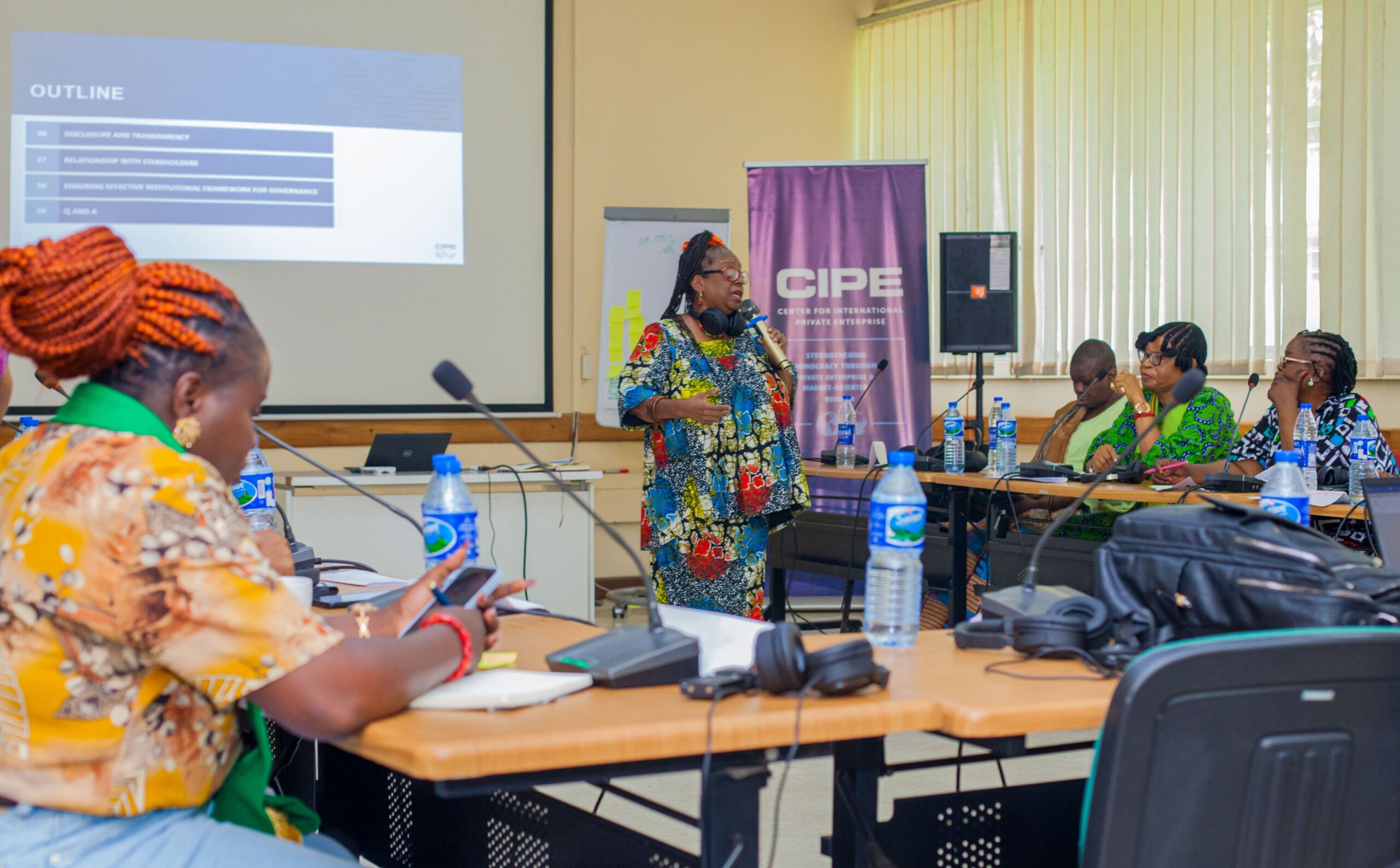Women’s economic empowerment is a cornerstone of global development and the Center for International Private Enterprise (CIPE) is at the forefront of this movement with its innovative WE-Champs program. Launched in 2022 with funding from the U.S. Department of State Secretary’s Office of Global Women’s Issues, WE-Champs aims to strengthen the ability of women’s chambers of commerce and business associations across Europe, Central Asia, and Africa to serve their members better.
The program fosters a robust network of participating chambers and associations enhancing their advocacy platforms and promoting local ownership. By connecting these organizations regionally and globally, WE-Champs facilitates the sharing of resources, experiences, and strategies, thereby bolstering support for women entrepreneurs.
A key aspect of the WE-Champs program is its comprehensive approach combining association excellence grants with mentorship and networking opportunities. The mentorship program pairs leaders of women’s associations with seasoned experts in association management, providing crucial guidance to navigate challenges and seize growth opportunities. This personalized support has proven instrumental in helping many associations define their strategic directions and improve operational mechanisms.
That is why when CIPE was coming to implement the WE-Champs program in Nigeria, they chose our Principal Consultant, Mrs. Toki Mabogunje, to facilitate the sessions on governance, programs, and services for associations. As a seasoned consultant and a past president of the Lagos Chamber of Commerce and Industry, she brought her wealth of experience to bear on the topics under discussion.
This prompted rich discussions among participants, engendering valuable learnings, insights, and connections between them. The 3-day workshop themed “Stronger Associations for Women’s Empowerment,” had representatives from 5 chambers and associations across Nigeria and Senegal and ran from July 11th to the 13th.
As the WE-Champs program continues to expand into Africa, the focus remains on replicating these successes and tailoring strategies to fit local contexts. The program emphasizes sustainable growth, regional networking, and evidence-based advocacy, ensuring that advancements are not only achieved but also maintained and used as foundations for future efforts.

